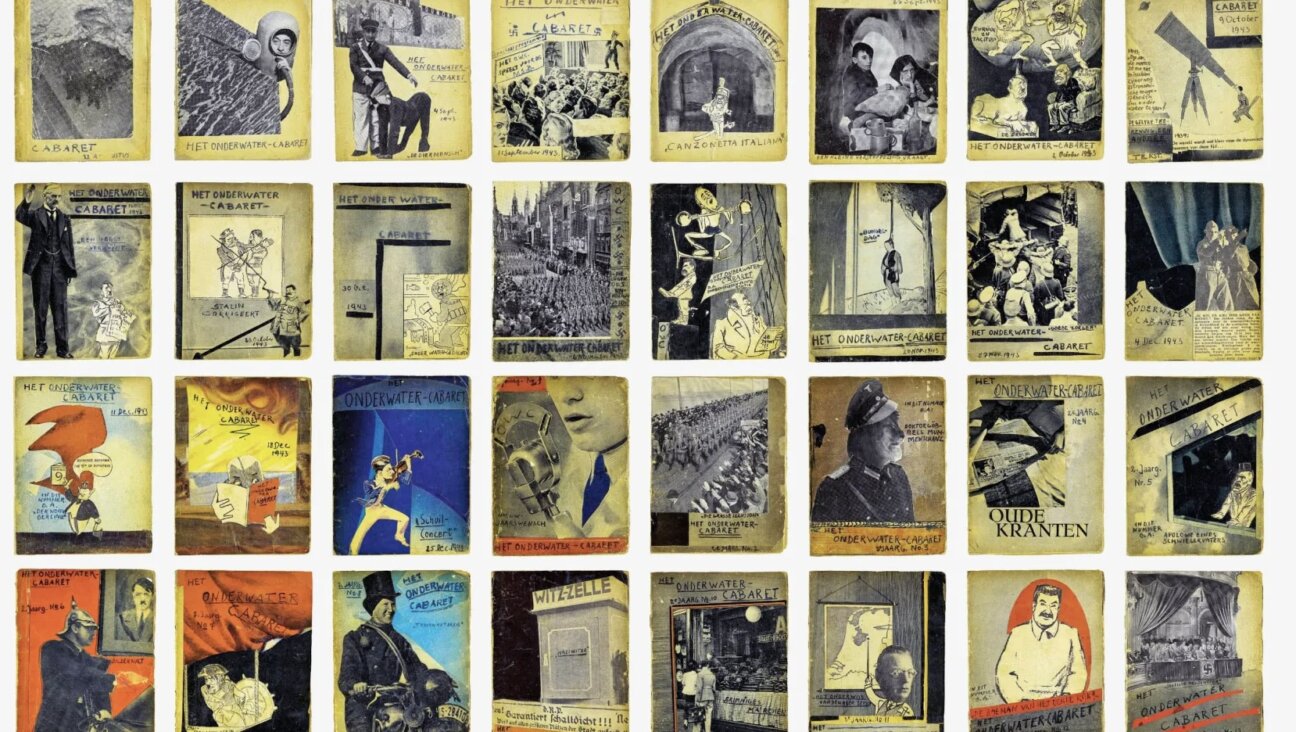From ‘The World To Come’
Each month, in coordination with our reading series in New York, the Forward publishes an excerpt from the work of that month’s series guest or guests. This month, we will feature readings by Dara Horn and Aviya Kushner (for full details, please see sidebar). Below, please find an excerpt from Horn’s new novel, “The World To Come” (W.W. Norton & Company).
He moved toward the sides of the gallery, staring up at the paintings that interrupted the walls like gigantic plate-glass windows, offering views beyond the room. Some of them, he saw, hung limp on the gallery walls, tired and derivative, a parade of boxy men like early Cubist works, or distorted interiors with absurdly bright wallpapers borrowed from Matisse. Ben became more interested when things started to fly: first clouds, then words, then angels, then goats, and finally men and women, soaring through the air. The more things flew, the better the paintings became. Occasionally, as he moved along the gallery walls, he thought of Erica Frank. He stared at the flying goals and resisted the impulse to search for her again over his shoulder. A few times, he allowed himself to turn around and scan the crowd for her face. When he didn’t see her, he was surprised to find himself disappointed. He stared at the paintings until they seemed to dissolve into blank white space.
A man near the door at the end of the gallery cupped his hands to his mouth, trying his best to roar above the crowd. “The band will be starting up downstairs in five minutes,” he bellowed.
A band? Sara must not have known about the band, Ben thought. He wasn’t about to listen to music; the year of mourning wasn’t over yet. For a moment he panicked. Then, as the hordes of jabbering singles began to flow down toward the door on the opposite end of the gallery, he realized, grateful, that he now had an excuse to go home. The room emptied quickly, and soon he was the only person in it, standing at the far end of the gallery next to a series of tiny paintings. He was about to turn around when a woman’s head leaned back into the room from a nearby doorway, a blur of light brown hair. Erica Frank.
“Going downstairs?” she asked
He was surprised to see that she was smiling. Had she forgotten their awkward conversation before? No, it didn’t look that way. Her smile was different from before: dark, canny, her upper lip slightly curled as if they had a shared private joke. Suddenly he felt as though he were seeing an actress backstage, shifting from playing a part to being herself. She was forgiving him, it seemed. Or was she just laughing at him? He searched for something to say to make her stay a moment longer, to test her, to see. “I’ll be down in a minute,” he answered, and for a split second he wished it were true.
But it wouldn’t have mattered. “I can’t stay for the music,” she said, and Ben briefly wondered why. But only briefly, because she was already moving away. “Have fun,” she said with a wave.
Ben watched as she vanished from the room, cutting back into the gallery and through a white door marked “Staff Only.” The door hovered open for a moment, framing the back of her hair, which glimmered gold in the shadow within the outlines of the doorway. Then the door closed behind her, a blank white wall. Ben felt the entire wasted evening draining through his gut. Well, Sara, he thought, surveying the empty gallery, I tried. He turned to leave. And then he stopped.
It was a painting of a street. The street was covered with snow, and lined by a sort of iron fence and little crooked buildings whose rooftops bent and reflected in all directions. Above the street, a man with a beard, pack, hat and cane hovered in the sky, moving over the houses as if walking — unaware, in murky horizontal profile, that he was actually in flight. The painting was tiny, smaller than a piece of notebook paper. The label next to the painting offered its date as 1914 and its owner as a museum in Russia, titling it Study for “Over Vitebsk.” This intrigued Ben, who despite his mastery of trivia on all topics, including modern art, had never before known this particular painting’s name. All he knew was that it used to hang over the piano in the living room of his parents’ house.
Excerpted from “The World To Come” by Dara Horn. Copyright 2006 by Dara Horn. With permission of the publisher, W.W. Norton & Company, Inc.
* * *
This month at Novel Jews:
Dara Horn is an award-winning novelist, essayist, professor and scholar. Her first novel, “In the Image” (W.W. Norton & Company, 2002), received many awards, including the 2003 National Jewish Book Award and the 2002 Edward Lewis Wallant Book Award. She has worked for Newsweek, Time and The New Republic and has taught at Harvard and at Sarah Lawrence College. She will be reading from her new novel, “The World To Come,” which will be published in January 2006 by W.W. Norton.
Aviya Kushner’s work has appeared in Partisan Review, Harvard Review and The Jerusalem Post. She recently received a Master of Fine Arts from The University of Iowa. She will be reading from her short story, “For a Place in the Next World.”
When: Wednesday, December 14, 2005, at 7 p.m.
Where: KGB Bar, 85 East 4th Street, New York, NY 10003
For more information, please visit our new Web site: www.forward.com/noveljews.
HORN: The author will read an excerpt from her second novel at the Novel Jews reading series next week.
















